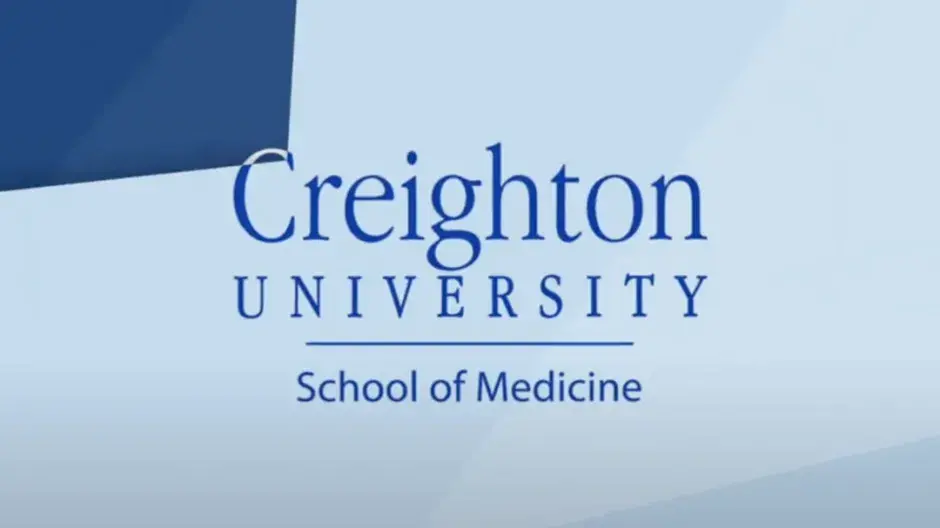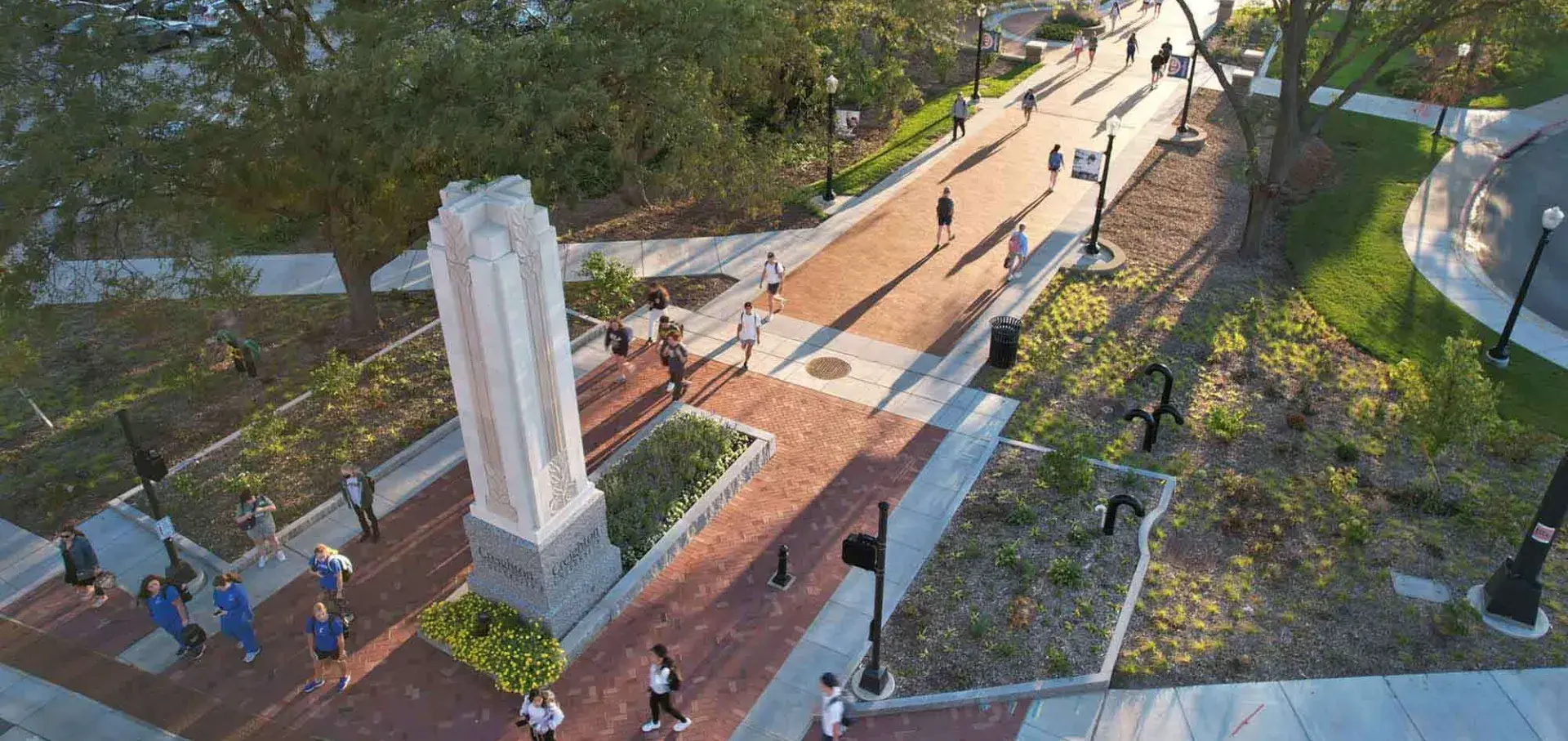
Interventional Cardiology Fellowship
Fellowship Mission
To produce physicians embodying the Ignatian value of cura personalis who aspire to become transformative leaders in their practice, institution and community by emphasizing clinical and scholastic excellence, patient-centered care, lifelong learning and wholesome development of the individual.
Vision
Our vision is that the Interventional Cardiology Fellowship Program will be the premier site for interventional cardiovascular training in the region. We will accomplish this through a comprehensive and varied experience with our outstanding faculty; a diversity of experience that encompasses the coronary, peripheral, and structural arenas; and an emphasis on quality care, appropriateness, and research.
Program Aims
The program's mission is to train individuals to be leaders in interventional cardiovascular education, research and clinical practice.
Our specific AIMS:
To produce fellows who achieve competency in the performance of a wide range of interventional techniques. Our goal to achieve this AIM is that the fellow will exceed the minimal required for training by 25%. At the mid-point of each academic year the PEC will review the numbers of procedures the fellow has successfully completed to be sure the fellow is on track, and then reviewed at the conclusion of each academic year. If a deficiency is noted the PEC will make recommendations to remedy the deficiency.
To perform procedures and provide care that is clinically effective, guideline based and cost effective. To achieve this AIM the fellow will participate the American College of Cardiology CathSap curriculum and obtain a passing grade in each of the modules. The fellow's progress will be monitored by the PEC to assure compliance and to review deficiencies.
To treat all patients regardless of their socioeconomic background or their ability to pay. To integrate education, research and patient care to attain the highest level of quality in each component. The fellow will complete one QI project in healthcare disparities during his fellowship.
To produce an interventionist who values scholarship and research as a tool to enable them to engage in life-long practice-based learning, critical review and application of new scientific knowledge to their patients and to guide future generations as teachers. To accomplish this, the fellow will either present one abstract or publish one paper during his/her fellowship. The PD will report on the progress of the fellow's research and scholarship and provide a final report at the end of the academic year.
Accreditation
The training program fulfills the requirements for training as stated by the American Board of Internal Medicine. The program is accredited by the Accreditation Council for Graduate Medical Education (ACGME) and was recently given the highest accreditation of 5 years.
Certification
You will be eligible to take the American Board of Internal Medicine’s subspecialty examination in interventional cardiology upon completion of the fellowship.
Positions
One position is available in the Interventional Cardiology Fellowship at Creighton University annually.
Qualifications
To apply to the Interventional Cardiology Fellowship Program, applicants must have successfully completed three years of cardiovascular training in an accredited program in the U.S. or Canada and be board eligible or board certified.
How to Apply
You must apply through the Electronic Residency Application Service (ERAS). The application form and all supporting documentation must be submitted by February 1.
Step 1
To apply to the program, visit the ERAS website.
The application requires the following information:
- Official medical school transcripts
- Official test transcripts for all applicable examinations (USMLE, LMCC, COMLEX, NBOME, FMGEMS, FLEX or NBME)
- Program director’s letter and at least two other letters of recommendation
- Curriculum vitae
- Personal statement
- Valid ECFMG certificate (if you graduated from medical school outside of the U.S.)
- Photograph
Step 2
If you are considered for an appointment, you will be asked to interview at Creighton University with the program director and selected faculty. Interviews are conducted between March and April of each year prior to the selection date.
The Interventional Cardiology Fellowship Program accepts only J1 Visas.
For information regarding benefits and compensation please visit our Graduate Medical Education Department.
Program Tour

Message From the Program Director
Our founders, Vincent Runco, MD and Richard Booth, MD, first established high quality cardiovascular care in this region in 1962. Shortly thereafter, they developed the region’s first cardiovascular fellowship. In 2005, the Interventional Cardiovascular Fellowship was established and has been highly successful in graduating high quality interventional cardiologists who now practice from coast to coast, and border to border. Our fellows are in private practice as well as academic positions.
Our program has always prided itself on being on the forefront of the latest techniques and therapies for coronary, peripheral and structural disease. We participated in pivotal trials that established the use of anti-platelet agents in interventional procedures. We were the first in the state to do atherectomy and stenting. We began doing radial artery catheterization in 1999, long before it was practiced in the rest of the country, and we have one of the highest experiences in the country. In other words, we continue to innovate but with high quality and compassionate care.
Today, our fellows get a comprehensive experience in the ever-complex world of interventional cardiology. They are well trained in both radial and femoral intervention and closure. There is ample experience in all coronary lesion types, including stable, unstable and STEMI, as well as CTO lesions. Fellows are exposed to all types of imaging modalities, including, IVUS, FFR, IFR, CT FFR, etc. There is training in all interventional techniques including: stenting, all forms of ballooning, atherectomy, laser, antegrade and retrograde CTO approaches. Fellows also gain experience in peripheral and structural evaluation and management.
Our training program offers an excellent balance between supervision and independence. Our faculty provide a nurturing environment as teachers, coaches and mentors. This environment facilitates stress-free learning and fosters life-long friendships beyond the training period. The camaraderie between fellows and faculty and the focus on the well-being of fellows are the distinguishing features of the Creighton cardiology training program and will be palpable when you visit us.
Interventional Cardiology Program Director Michael Del Core

General Information
Education
Our fellows spend their one-year fellowship in the cardiac catheterization labs, as well as the hybrid operating room of CHI Omaha, participating in all procedures. Fellows are given gradual autonomy in performing procedures but with adequate supervision at all times. There are in-service opportunities to provide training in various techniques and a simulation curriculum is provided. Unbiased industry- sponsored training is also encouraged when available. Besides the practical nature of the fellowship, the year is spent going through CathSap to prepare for the boards, and the fellow is expected to attend grand rounds, as well as Journal Club.
Experience
Our fellows perform over 500 coronary interventions and are exposed to:
- All coronary lesion types including: Type A, B, C, stable, unstable, calcified, bifurcation, STEMI, CTO, left main, etc.
- All types of coronary approaches, including: stenting, all manner of balloons, atherectomy, laser, antegrade and retrograde approaches for CTO
- All types of coronary evaluations, including: IVUS, FFR, IFR, etc.
Depending on their interest, fellows can develop skills in peripheral interventions of both lower and upper extremities.
- All peripheral lesion types including total occlusions
- All peripheral approaches including: antegrade and retrograde, stenting, balloons, atherectomy, and laser.
Depending on their interest, fellows can develop skills in structural heart disease, including: TAVR, Mitral Clip, PFO and ASD closure.
Training Locations
The CHI Health Omaha hospital system includes five hospitals with seven cardiac catheterization labs. Fellows can participate in all procedures at any of the labs. Fellows participate in STEMI call at all of the hospitals.
Hear From Our Fellows

The fellowship will consist of one year and will be primarily spent under direct supervision in the cardiovascular laboratories performing diagnostic and interventional procedures, as well as time spent doing preoperative as well as postoperative evaluations of patients. Ample time is also given for fellow-directed independent research. The majority of the experience will take place at the CHI Health Creighton University Medical Center, but may include the VA, as well as three other community hospitals. At the end of the first year the fellow will have completed the Accreditation Council for Graduate Medical Education (ACGME) requirements for training in interventional cardiology.
Each fellow will have the responsibility for the care of patients while in hospital that have undergone these procedures. The full-time faculty will supervise this care. The fellows will also be responsible for evaluating patients who return to the clinic or emergency room for complications. On-call responsibilities are up to the fellow, but is home call for STEMI procedures. Our fellows participate in approximately 75 STEMIs per year. Each fellow will end up doing approximately 500 coronary interventions during the fellowship.
The fellow will also help with the training of the general cardiology fellows in the performance of diagnostic procedures.
Each year the fellow is given vacation time as well as educational leave for meetings relating to interventional cardiology. Fellows will be evaluated on a quarterly basis by all full-time faculty. They will meet with the program director each quarter to discuss their evaluations.
The fellow is expected to attend and participate in all grand rounds, as well as Journal Club. In addition, the fellow will be expected to complete the CathSAP curriculum provided the American College of Cardiology during their fellowship. The principle teaching follows the recommendations and guidelines set forth by the American College of Cardiology, the Society for Cardiovascular Angiography and Interventions, and the American Heart Association and covers the following:
- Anatomy: Cardiac, vascular and coronary artery anatomy, including anatomic variants and congenital abnormalities
- Physiology: Basic circulatory physiology, coronary vascular physiology, myocardial blood flow regulation, myocardial physiology and metabolism
- Vascular biology and pathology: Normal vascular structure and function, response to injury, mechanisms of atherosclerosis and mechanisms of restenosis
- Hemostasis: Intrinsic and extrinsic coagulation cascade and platelet physiology
- Pathophysiology: Myocardial ischemia and infarction, myocardial reperfusion, circulatory shock, anaphylaxis and cardiac arrhythmias
- Pharmacology: Anticoagulants, antiplatelet drugs, thrombolytic drugs, X-ray contrast agents, myocardial inotropes, vasopressors, vasodilators, antiarrhythmic drugs and drugs affecting lipid metabolism
- Radiology imaging and radiation safety: Principles of X-ray imaging, quantitative coronary arteriography, operation of cinefluorographic X-ray equipment, operation of digital video imaging systems, radiation biology and radiation protection
- Intracoronary imaging and coronary physiology: Principles of intravascular ultrasound imaging and Doppler coronary flow velocity and coronary pressure measurements
- Interventional device design and performance: Device materials and characteristics
- Clinical management strategies: Performance and limitations of interventional devices, spectrum of coronary ischemic syndromes, results of interventional cardiology clinical trials, management of acute hemodynamic alterations and mechanical and pharmacological circulatory support.
Department Faculty

Himanshu Agarwal, MD
- Assistant Professor
- View Profile

Michael G. Del Core, MD
- Senior Associate Dean, Medical Education
- 402.280.4626
- View Profile

Toufik M. Haddad, MD
- Assistant Professor
- View Profile

Ann E. Narmi, MD
- Assistant Professor
- View Profile
Contact Us

Elle Cooper
ellecooper@creighton.edu
402.280.4235
Michael Del Core, M.D.
Program Director
michaeldelcore@creighton.edu
402.280.4626




